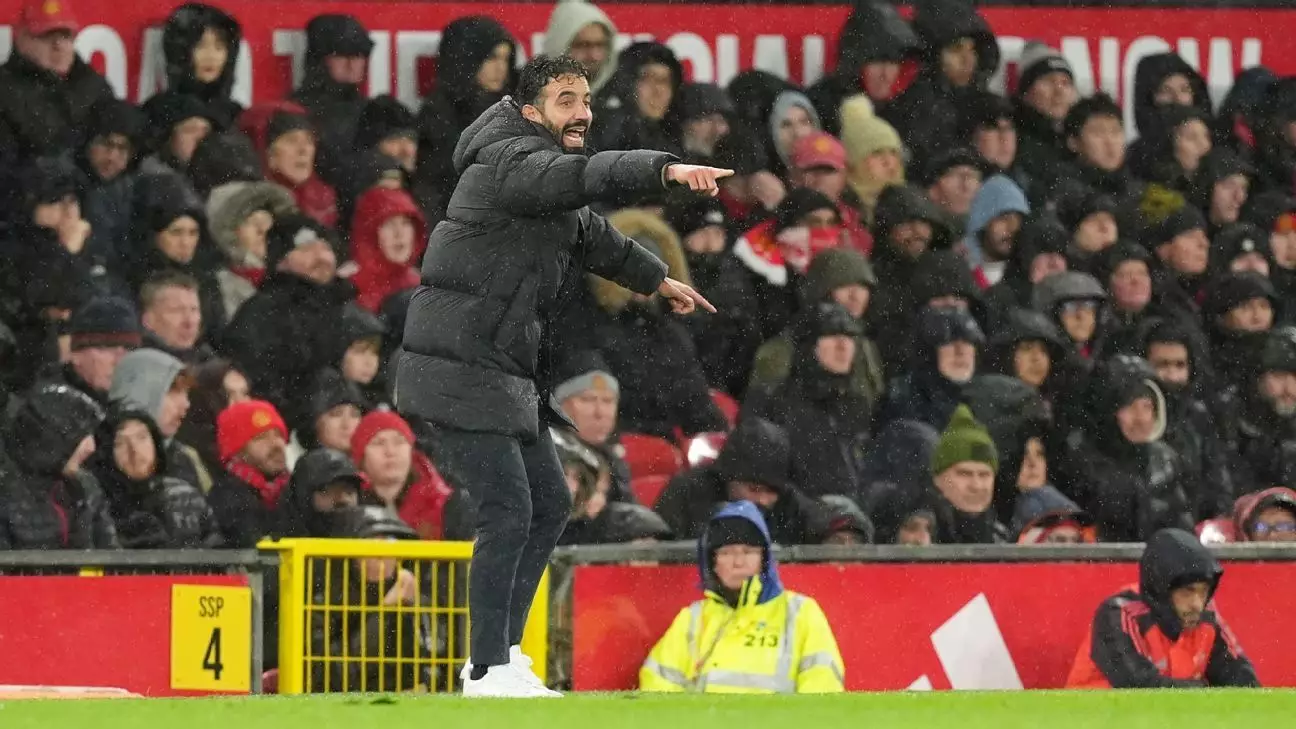The recent clash between Manchester United and Nottingham Forest at Old Trafford marked a pivotal moment in football history, with Forest securing their first victory at this iconic venue in three decades. A 3-2 triumph not only deepened United’s woes but also highlighted the challenges the club faces under the management of Ruben Amorim. This defeat, Amorim’s second consecutive loss in the Premier League since taking over, raises pressing questions regarding the direction in which United is headed.
Standing at 13th place in the league with a mere 19 points, Manchester United is not just underperforming; they are witnessing their lowest tally after 15 games since the 1986-87 season. Amorim candidly acknowledged the uphill battle the team is facing, characterizing the path back to prominence as a “long journey.” While his words resonate with acceptance, they also beckon skepticism about the club’s ability to bounce back from what seems to be a relentless downward spiral.
However, the manager sought to instill a sense of resilience among fans and players alike, recognizing the weight of playing for a club of such caliber. He stated, “It will be a long journey but we want to win because this is a massive club.” The passion surrounding Manchester United is undeniable, but the reality of their current position in the league is jarring.
One of the most troubling aspects of United’s performance against Forest was the series of defensive blunders that directly contributed to conceding three goals. From Nikola Milenković’s early opener to the dismal mistakes made by Bruno Fernandes and André Onana, the match was a showcase of vulnerability that opponents will surely capitalize on. Amorim critiqued the performance, stating the importance of maintaining focus and depth in training, which is vital for improvement.
The fragility observed on the pitch raises alarms about the team’s defensive structure. Mistakes can be attributed to various factors: communication issues, lack of cohesion amongst players, and perhaps the immense pressure that comes with wearing a Manchester United jersey during troubled times. That said, for Amorim, this defensive turbulence is not entirely foreign. He indicated having faced similar challenges during his tenure at Sporting CP, suggesting that a turnaround is feasible.
While Amorim shares a vision grounded in vigilance and strategic improvement, stakeholders of Manchester United must grapple with the urgency of their situation. Football fans know that the beautiful game can be unpredictable—turnarounds can happen almost overnight. For now, players and management must identify and address key aspects requiring immediate adaptation, lest they confront a prolonged period of mediocrity.
The crux of Amorim’s reflection lies in his insistence on unity in performance and unwavering focus on upcoming training sessions. To escape the specter of extended struggles, Manchester United needs not only tactical adjustments but also a pervasive culture of accountability amongst its players and support systems.
As Manchester United aspires to reclaim its status as one of football’s elite clubs, the journey ahead is laden with challenges. It will require introspection, committed training, and a concerted effort to heal from the wounds of recent defeats. Whether this historic club can triumph over adversity remains to be seen, but the hope for a resurgence is glowing brighter than ever.

